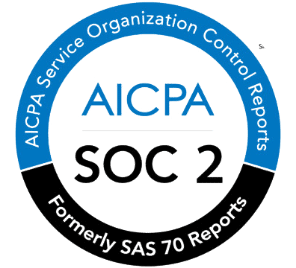In a recent survey conducted by Holistiplan, we asked financial advisors on our Estate Planning Waitlist how they currently approach estate planning in their practices. The insights are clear: estate planning is no longer a peripheral offering—it’s quickly becoming a core expectation in comprehensive financial management.
Our survey results reveal a significant shift in advisor behavior, attitudes, and client expectations. As more advisors look for ways to elevate client value and distinguish themselves in a competitive landscape, estate planning is emerging as a key differentiator. This article breaks down what the data means for the future of advisory services and how forward-thinking firms can respond.
Estate Planning Is Becoming a Standard Practice
According to Holistiplan’s survey of small-and-medium-business (SMB) focused advisors, 75% of respondents proactively address estate planning as part of their client management strategy. This reflects a growing industry trend where estate planning is seen as a baseline expectation rather than a bonus feature.
Technology’s Growing Role in Estate Planning
The survey showed that 41% of advisors currently use software solutions as part of their estate planning toolkit. This suggests a rising interest in scalable, efficient tools to enhance the estate planning experience—especially when serving a growing client base.
The Continued Value of Human Expertise
At the same time, 59% of respondents still rely on in-house or external experts to support estate planning needs. This affirms the continued necessity for human judgment and customized advice, even as technology becomes more common in the planning process.
Client Expectations Are Shifting
A full 33% of surveyed advisors believe that clients now expect estate planning to be part of their financial planning experience. While not yet universal, this growing perception marks a shift in the advisor-client relationship and what clients consider to be “standard service.”
Estate Planning as a Business Differentiator
Perhaps most compelling, 67% of Holistiplan survey respondents believe estate planning represents a strategic differentiator for their business. This indicates that estate planning is not just meeting current client needs, but is also being positioned by advisors as a tool for brand distinction and deeper engagement.
Advisors’ Pain Points
Our survey respondents also cited the top points of pain in delivering estate planning solutions to their clients.
- Time-intensive process for collecting and analyzing current estate planning documents, prohibiting meaningful scale
- Difficulty customizing impactful client deliverables that prompt understanding and action
- Creating consistency in process and deliverables among advisors
Strategic Implications for Advisors
To fully capitalize on this shift, advisors should:
- Adopt a Proactive Approach: Make estate planning a core topic in client discovery, annual reviews, and onboarding. Don’t wait for clients to bring it up.
- Leverage Both Technology and Human Expertise: Use software for planning efficiencies and insights, but retain the consultative value of legal or estate professionals where appropriate.
- Market Estate Planning as a Value Proposition: Position your estate planning process as a core differentiator—on your website, in client conversations, and through educational content.
Conclusion
The results of Holistiplan’s estate waitlist survey point to one undeniable truth: estate planning is rapidly evolving from an optional offering to a core client expectation. For advisors, this represents both a challenge and an opportunity. By embedding estate planning into the heart of your practice—and combining technology with expert insight—you can deliver unmatched value and secure your place as a trusted, forward-looking advisor.




